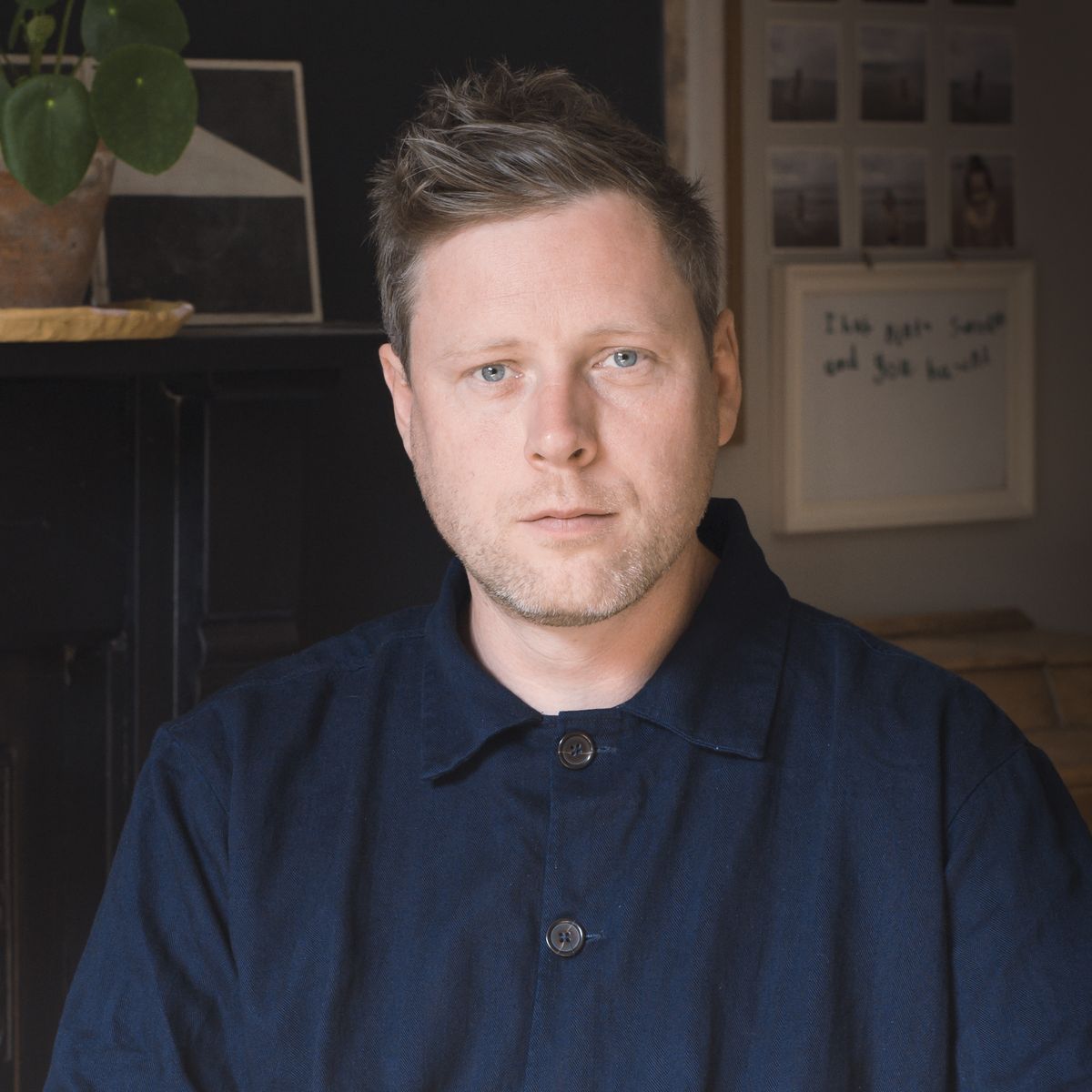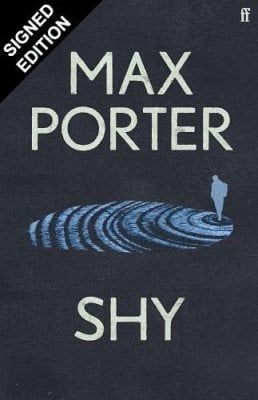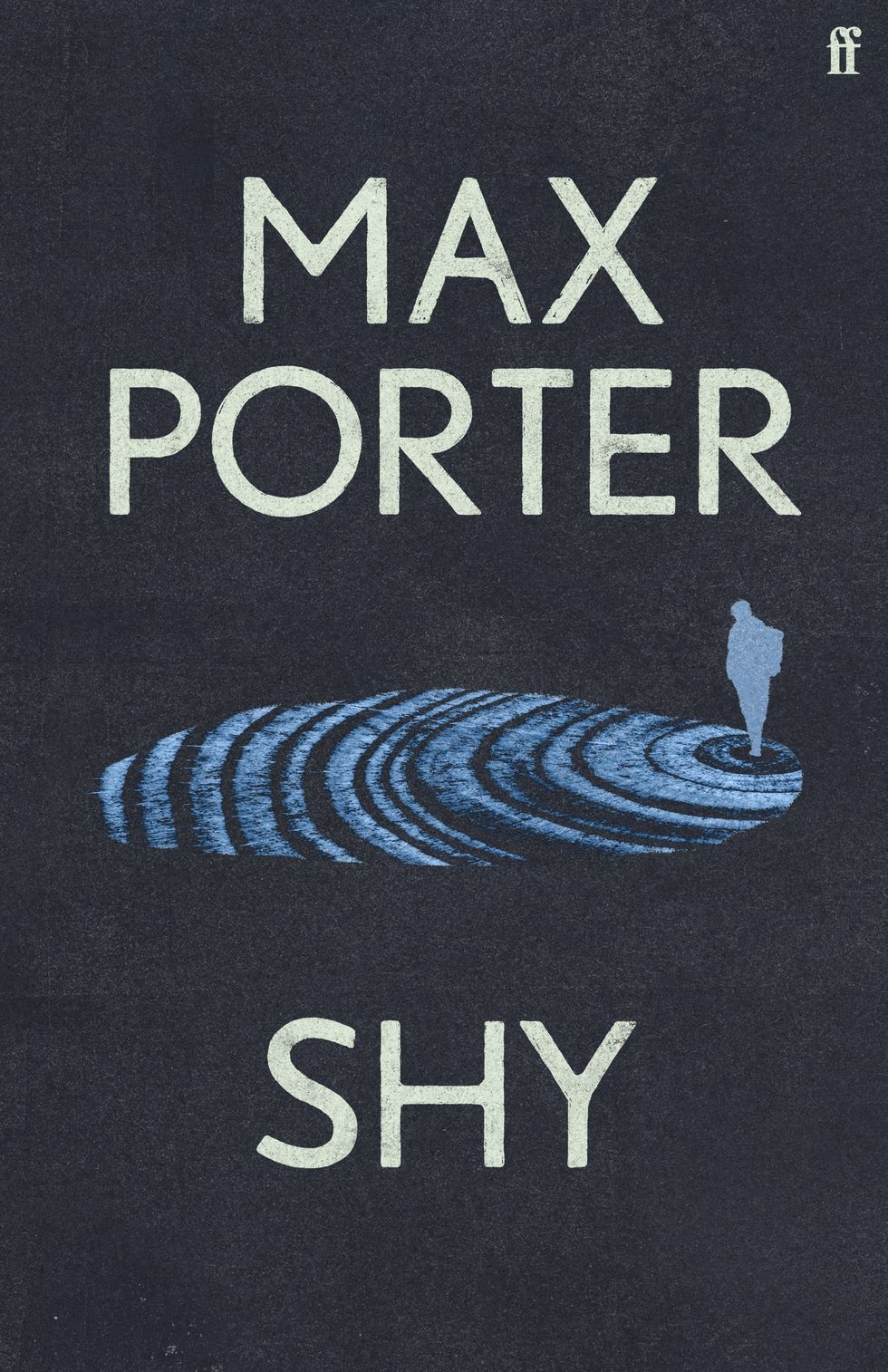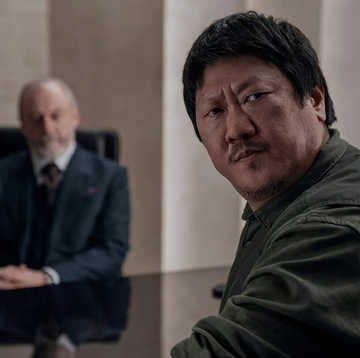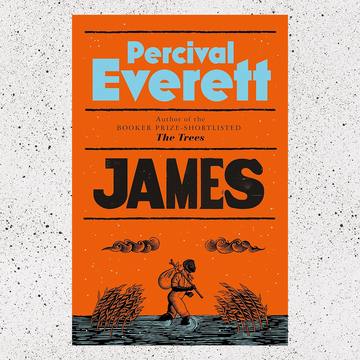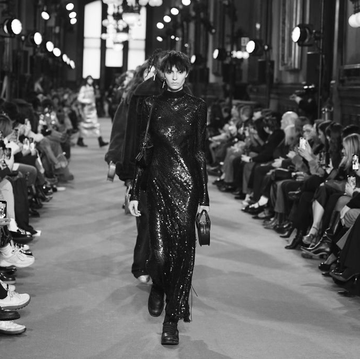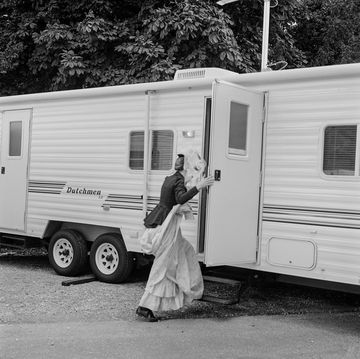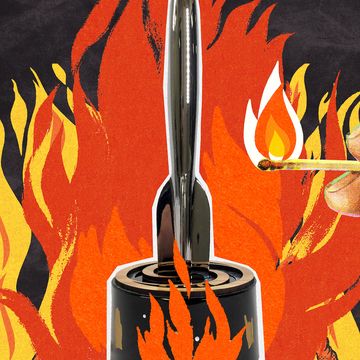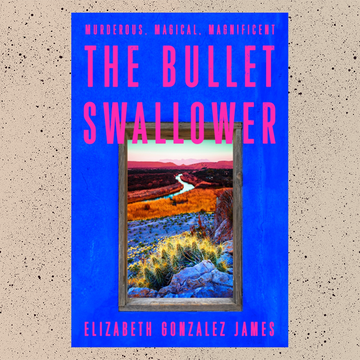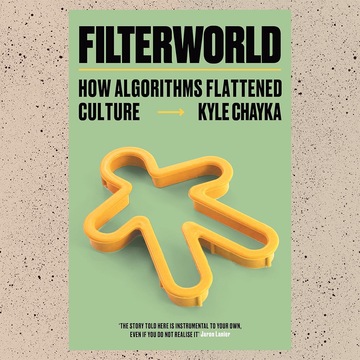Last autumn, after finishing his latest book, Max Porter returned to the woods he had visited just before starting that project. “There’s an amazing beech tree, like astonishingly, almost inexplicably huge in the middle of these woods,” he tells me, over Zoom from a London hotel. On the side of the tree, freshly carved into the still-oozing bark, was the word “Max”. This seems, as it likely did to Porter at the time, unbelievable. But these woods, according to a Google search, are the eighth most haunted in Britain. “There’s something going on in these woods – a palpably strange sense of other people being there.” This is not the story we are here to discuss, but that feeling, of uncanny happenings and haunting echoes, is relevant to the one we are going to talk about: his latest novel, Shy, which is out now.
The book centres on a troubled teenager named Shy, who lives at a rural boarding school, named Last Chance, for similarly wayward boys. When we join Shy, he’s sneaking out of school and headed to the school’s pond, carrying a rucksack full of rocks. Throughout his early morning journey, we learn of Shy’s past: bloody fights with his peers, an unsettled family life, increasingly concerned teachers. “It’s a monologue really,” Porter, who lives near Bath, says. “It’s one person on a stage being bombarded by the context in which he exists, and by the voices in his head and around him.” He hopes, on release, that “the reader becomes one of those voices”. Though some reactions can be perplexing – Porter has learned he has “no right of reply”, even for the most eccentric takes – he’s excited to see what questions arise, from teachers, teenagers, society at large. As Porter summarises, “What do you with a problem like Shy? That’s the point of this book.”
When we speak, Porter is in the middle of publication week. He has just led a live performance of the book at the Southbank Centre with a cast including Ruth Wilson and Toby Jones, an event that sounds enlivening but also a little exhausting. The week also brings the anxieties of good reviews, bad reviews, and out-there takes. Over the years that process has become a little easier for the author. “I have managed,” Porter, who previously worked as editorial director of Granta Books, explains, “to disembody myself.” Porter’s first book, 2015’s Grief Is the Thing with Feathers, was not exactly what you would call an easy sell: a novella about a crow who visits a Ted Hughes scholar and his two sons after the death of their mother. But it was a critical and commercial smash, and later became a play starring Cillian Murphy. Two more followed: Lanny, longlisted for the 2019 Man Booker Prize, and 2021’s The Death of Francis Bacon, which imagined the last days of the painter.
Shy, as readers of Porter will no doubt expect, is thoughtfully designed, with blank space both in the narrative and on the page. “These fragments between the elements of the collage are for you to do you work,” Porter says. At just 119 pages, Shy also manages to be deeply empathetic, relevant not just to lost 15-year-old boys, but anyone who has felt lonely, disaffected, a little reckless. Fans of Porter will know what to expect of his lyrical prose, but it takes on a new urgency when conveying Shy’s thoughts, which are sometimes confused, and sometimes incisive. In one perceptive passage, Shy describes the hierarchy at Last Chance: “They each carry a private inner register of who is genuinely not OK, who is liable to go psycho, who is hard, who is a pussy, who is actually alright, and friendship seeps into the gaps of these false registers in unexpected ways, just as hatred down, just as terrible longlines does.”
It also makes good use of its ‘90s settings, evoked by mentions of Tekken, Buffy, the looming 1997 election. Though these references provide Shy with a pleasing nostalgia, they also reveal more depressing truths about the UK, namely that the problems affecting Shy, like the potential closure of his school, persist. “It is a book about 1995, that works as a book about now, I hope,” Porter says. “I wrote it from a position of absolute horror at the political present.” Though the novelist did not want to “essay around the failing of the contemporary, Conservative government”, his point is clear. “Anybody reading this book now, who is awake, will see what the consequences of a place like Last Chance closing is,” he says. “When you close youth clubs and social support systems in inner cities, what happens when you strip the welfare state of funding? These things are obvious and terrifying. Where are we? Where are we going?”
Shy’s spiky voice offers a good rejoinder to any potential romanticisation of the time. It is hard to embrace fully ‘90s optimism – Kate Moss puffing on a Marlboro Light, the thrum of Oasis – when his narration points out such glaring problems in society. “It’s often the teenage voice that says, ‘I don’t buy that, it’s a sham,’” Porter points out. “We belittle that sort of revulsion in the same way we belittle teenage love or teenage activism.” Through Last Chance’s elective cohort, those issues are teased out – sometimes seriously, as with Shy’s friend Benny, who is Black, but often with striking humour. “I only wanted to get to the fact that actually, rather than being society’s waste product, these boys are, in fact, a highly sophisticated social unit, working out the nuances of class, and gender, and sexual freedoms and race.”
Porter begins his writing by drawing; the initial sketch he had for Shy was of a boy, with a backpack, surrounded by swirling water, a house on the hill in the background. “I had an impulse to write it quite differently from my other books, so only after I’d had the idea, I had a dream and an encounter in the woods, and I ran to my desk and just started writing,” he recalls. Porter wrote quickly – starting in September 2021 when his three sons returned to school – and edited more closely that he had ever before. He also crafted “two separate chunks”, the equivalent length of two other books, but ultimately removed these to maintain the book’s sense of energy.
The prospect of those excised passages, told from the perspective of different characters in Shy, will be tantalising for Porter’s fans. I tell him that I found myself craving more from these characters after the book ended. But Porter loves the novella form, mentioning a review in The Observer that suggested he should write a longer book. “I just don’t buy that, really,” he says. What the novella does, he believes, is “get you thinking longer than some novels of triple, quadruple the length do”. “If you’re wanting a bit more from those characters, or wanting more sense of what might happen, that’s good. I think that means it might be a book you think about a little bit after you’ve turned the last page.”
Now, though, Porter says he does want to write a different kind of book. That’s partly down to his recent collaborative work, which has has led him down different paths. But it’s also because he doesn’t want to remain stagnant. And over the last four books, he has become very efficient at generating work from disparate sources: “a tangle, there’s a knot, there’s an idea on the breeze, an uncanny human or architectural image.”
“Perhaps that’s one of the reasons that I’m interested to move beyond the fragmentary,” he says, “I now want to see what happens when I don’t collage but actually build from the ground up. I want to see if I can create a different brain-relationship for myself.”
Shy by Max Porter is out now from Faber
Henry Wong is a senior culture writer at Esquire, working across digital and print. He covers film, television, books, and art for the magazine, and also writes profiles.
